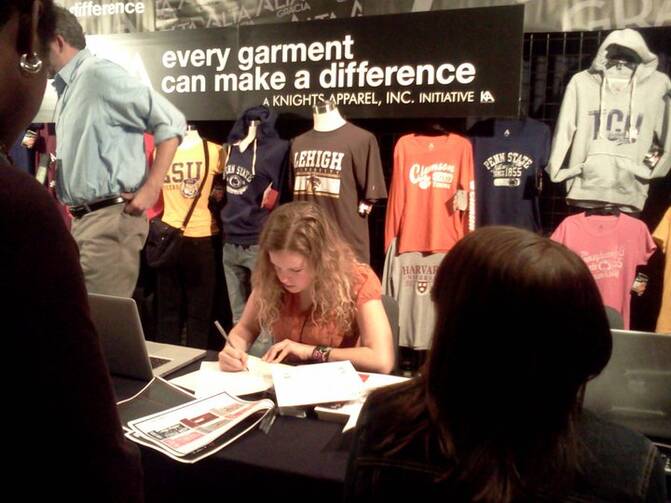In December Seattle University joined the list of Catholic colleges and universities fighting to prevent their adjunct faculty from forming a union. Provost Isiaah (sic) Crawford addressed a letter to the adjuncts explaining that the university, although opposed to their union efforts, considered them “instrumental members of our academic community.” Presumably the Provost was using the word colloquially and was not implying they were mere tools of the University administration with no intrinsic value (cf Aristotle, Politics I. iv: “the slave is a living instrument”). Like St. Xavier University, Manhattan College and Duquesne, Seattle oddly invoked its religious identity to explain why the university opposed the union – even though Catholic social teaching is quite unequivocal about the right of workers to organize.
At this year’s annual Catholic Labor Network meeting, administrators, students, faculty and workers from Georgetown University explained how their institution embraced a more literal interpretation of Catholic social teaching and its obligations. Upon learning that Georgetown adjuncts were considering unionization the administration concluded that papal encyclicals like Rerum Novarum and Caritas in Veritate meant just what they said. The decision to join or forego union membership belonged to the adjuncts alone, and the university ought not interfere with their decision.
This is not an easy decision for any employer to reach, for it means giving up unilateral control of the workplace. And although Catholic social teaching sees a positive role for “workingmen’s associations” – like the medieval guilds, they can help improve both the craft and person – managers often believe that if workers join a union it means they themselves have somehow failed. Georgetown did not arrive at this policy without difficulty.
Georgetown’s policy, the speakers pointed out, could be traced to events a decade earlier – when student activists organized a hunger strike to demand a living wage for workers providing cleaning and food services to the University. That episode launched a decade of dialogue and discernment as the Georgetown community explored what Catholic teaching required of the faithful employer.
The Just Employment Policy Georgetown has enumerated in the years since is an object lesson in applying Catholic principles governing labor and work. Among other things, the Policy defends the right to organize without intimidation for both Georgetown employees and employees of Georgetown service contractors; requires a living wage for both groups; and seeks to ensure that fair labor conditions are honored in manufacturing facilities overseas producing Georgetown gear.
The Georgetown-based Kalmanovitz Initiative for Labor and the Working Poor is fostering a dialogue with other Jesuit universities about business practices rooted in our faith. But the University's policy really challenges all Catholic employers, public and private, to consider carefully how they can express their faith in their business practices.








